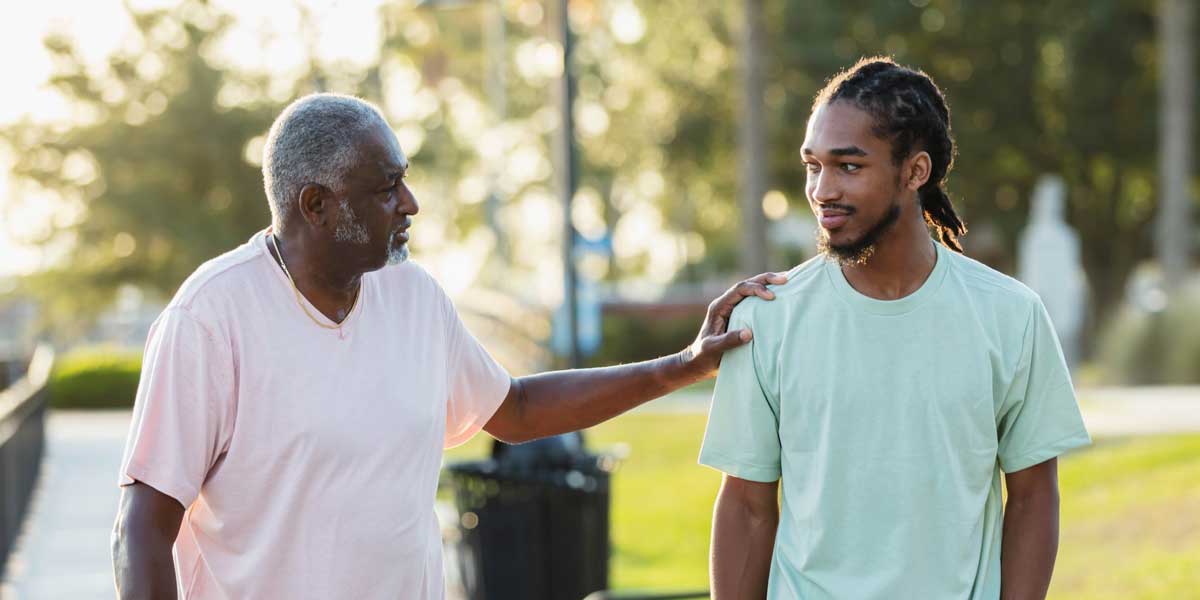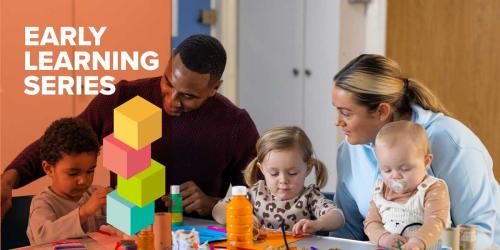What Informal Mentors Can Teach Us About Effective Mentoring

Most of us can identify at least one adult who played an important, positive role in our youth: a teacher who helped us with college applications, a coach who talked us through a difficult decision, or an extended family member who always reminded us how valuable we were to them.
For many of us, the word “mentor” conjures up images of formal programs where adults, often from outside the community, are paired with student mentees. But mentoring encompasses a range of formal and informal relationships that support young people in school, work, and socioemotional and identity development. And although adults who act as informal mentors may not see themselves as mentors, they often have a strong influence on young people’s lives.
The magical part of youth mentoring is that youth get to decide.
This National Mentoring Month, we celebrate the power of informal mentors and consider what these beneficial relationships can teach us about making all mentoring opportunities more equitable and youth centered.
The Power of Informal Mentors
My own interest in mentoring stems from my background in social work. Years ago, I worked at a program that supported people who aged out of the foster care system in completing their four-year college degrees. The program offered great resources and events, but I noticed that the students who eventually completed degrees all had something in common. It was not just our program; it was an aunt, a neighbor, a pastor—some supportive person back home who the student could call in a tough situation. For me, it underscored the idea that while systems, programs, and policies are important, individual relationships have so much power to influence the lives of young people. I became fascinated by who these people were, how they have such positive influence, and how to make these powerful relationships available to all students.
In the field, we call these connections informal mentors: people who provide guidance and support outside formal mentoring programs. Informal mentors are a promising positive intervention for young people for several reasons. First, informal mentors are more accessible than formal mentors since the relationships can happen anywhere—through school, extracurricular activities, family, and more. Second, informal mentors have a positive impact on young people across risk status, meaning that they are effective for young people who are systems-involved, minoritized, or otherwise marginalized. Lastly, young people tend to have closer, longer-lasting relationships with informal mentors because young people choose them. While formal programs often try to pair mentors and mentees based on shared interests or backgrounds, informal mentorships form because young people use their own criteria to vet the adult, then ultimately make the choice to trust and spend time with them.
What We Can Learn From Informal Mentors
The power of informal mentors underscores how we should approach youth mentoring: Mentoring programs need to be driven by youth voice and choice. When youth have a say in who mentors them and how they are mentored, the mentoring relationship is better able to meet their needs. Some programs already do this through models like youth-initiated mentoring. In this model, young people join a program, then identify an adult in their life who they would like to have a stronger relationship with. This allows each young person to identify the type of mentor they need for their unique situation and goals. The magical part of youth mentoring is that youth get to decide.
Informal mentors also highlight another important consideration: Mentors do not need to be superheroes; they need to build reliable, trusting relationships. Popular narratives tell us that mentors change lives, depicting them as a “white knight” arriving to fix a problem. But these stories are overexaggerated, may intimidate potential mentors, and can instill problematic deficit-based mindsets about mentees and their communities. In reality, effective mentors are people who young people can trust and rely on—adults who help young people build the skills, habits, and relationships that will help them succeed in life.
At the same time, mentors do not need to be everything for their mentee. It takes a constellation of relationships to support a single individual, and each mentor is just one point of connection in a young person’s life. Every young person has unique assets that help them succeed in school and life, including their families, their peers, and their communities. Effective mentors recognize these holistic networks of support; they help young people tap into their existing social capital while expanding it further.
Finally, adults can improve equitable access to mentoring by creating supportive conditions. The young people who are most likely to report having a mentor are white and wealthy. Due to historical and systemic racism, these students tend to have more access to social capital and more protective factors, such as high-income, two-parent households and safer neighborhoods with lower rates of unemployment and public assistance. Schools and organizations can address this inequity at a systems level by preparing every adult within the learning environment to be an effective mentor. This can increase the opportunity for every young person to find a mentor who can help them achieve the goals they set for their own life.
Strategies to Make Mentoring More Accessible and Youth Centered
- Build relationship-centered, equitable learning environments that create space for mentoring to happen. Strategies might include keeping youth-to-adult ratios small (such as limiting class size), teaching social and emotional learning skills, and providing adults with time to serve as a mentor.
- Provide professional development for adults to understand the importance of mentoring and how to be an effective mentor, including how to use culturally responsive and trauma-informed practices.
- Prioritize youth voice and choice. Consider strategies like youth-initiated mentoring models, youth participatory action research, and engaging young people in the evaluation of mentoring programs. Make adult mentors available to young people, but do not take away the young person’s agency in deciding whether to pursue a mentoring relationship.



